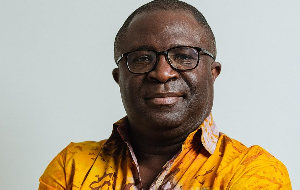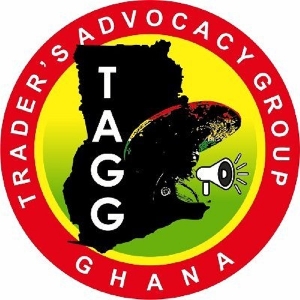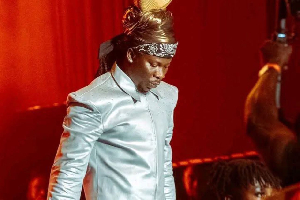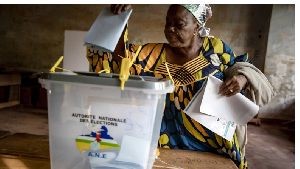By Kwame Okoampa-Ahoofe, Jr., Ph.D.
Following the unceremonious bumping of Justice Anthony Oppong from trying the 10 suspects in the murder of Ya-Na Yakubu Andani, Mr. Samuel Atta-Akyea, counsel for the accused, was reported to have observed that merely changing judicial horses mid-stream is not apt to necessarily produce the sort of clinical outcome for which judges are trained.
To be certain, the New Patriotic Party’s Member of Parliament for Akyem-Abuakwa South could have ventured even further to observe that, indeed, the acute politicization of the Ya-Na trial by both the Attorney-General and the ruling National Democratic Congress (NDC) at large, is apt to make Justice E. K. Ayebi’s task even more Herculean.
For it is almost criminally obvious that when Mrs. Betty Mould-Iddrisu and her bumbling lieutenant, Mr. Barton-Oduro, speak about the imperative need to guaranteeing a fair judicial outcome in the Ya-Na trial, such an outcome could not be anything short of Justice Ayebi handing down a guilty verdict at all costs.
Matters are not made any better by the fact that in the four years during which period that President John Evans Atta-Mills fervidly campaigned for the presidency, getting a court of law to hand down a guilty verdict was his primary vote-garnering concern. In other words, for President Atta-Mills and his NDC cohorts, finding an amicable and lasting solution to the protracted Yendi crisis was never a priority.
Unfortunately, what we have in the Ya-Na case has far-reaching consequences beyond mere trial and conviction. What is studiously required here is a statesmanship approach to a delicate familial conundrum. This, of course, is in no way to suggest that where objectively plausible, culpable suspects ought not to be afforded their proverbial day in court and closure properly sought and reached.
Rather, what we mean is that any prosecutorial process ought to be clearly envisaged by all well-meaning Ghanaians to be transparent and fair. Short of the foregoing, the only conclusion that can be reached by any fair-minded citizen is a travesty. And it is quite obvious that this is precisely what Mr. Atta-Akyea means when he opines that: “If we see this case as a political case, then, probably they [i.e. the Atta-Mills government] might need a political judge. On the other hand, if they see it as a murder case and everybody should be impolitical [apolitical?], then what should be anyone’s worry?” (See “New Judge for Ya-Na Trial is not Enough – Atta-Akyea” Peacefmonline.com 8/31/10).
We also learn that Judge Ayebi was recently promoted from his bench on the High Court to the Court of Appeal. And while the context of such elevation vis-à-vis Dr. Kwabena “Amedeka” Adjei’s mantra of “cat-killing” judicial finessing by the NDC government may not be readily testable, nevertheless, such suggestive state of affairs could only bring cold comfort to those who must be subjected to the court of a presumably still celebratory – or honeymooning – Justice Ayebi.
Still, to second-guess Justice Ayebi would be tantamount to impugning the caliber of the distinguished and fine minds that people our august bench and, indeed, the judicial institution itself. And needless to say, any country whose judiciary cannot be trusted to deliver justice without regard to ideological suasion could not be nobly ranked among the civilized. Which is also, in no way whatsoever, to suggest that under the protracted pseudo-revolutionary tenure of the Provisional National Democratic Congress (P/NDC), all has been hunky-dory with the Ghanaian judiciary.
And, in fact, it is in allusion to this inglorious past of the Ghanaian judiciary, particularly under the Nkrumah-led Convention People’s Party (CPP) and the Rawlings-chaperoned Provisional National Democratic Congress (P/NDC), that Mr. Atta-Akyea exhorts boldness of conviction among members of our judiciary.
*Kwame Okoampa-Ahoofe, Jr., Ph.D., is Associate Professor of English, Journalism and Creative Writing at Nassau Community College of the State University of New York, Garden City. He is a Governing Board Member of the Accra-based Danquah Institute (DI) and author of 21 books, including “Marlena: Sexual Indignities” (Atumpan Publications/Lulu.com, 2009). E-mail: okoampaahoofe@optimum.net.
###
Opinions of Friday, 10 September 2010
Columnist: Okoampa-Ahoofe, Kwame














